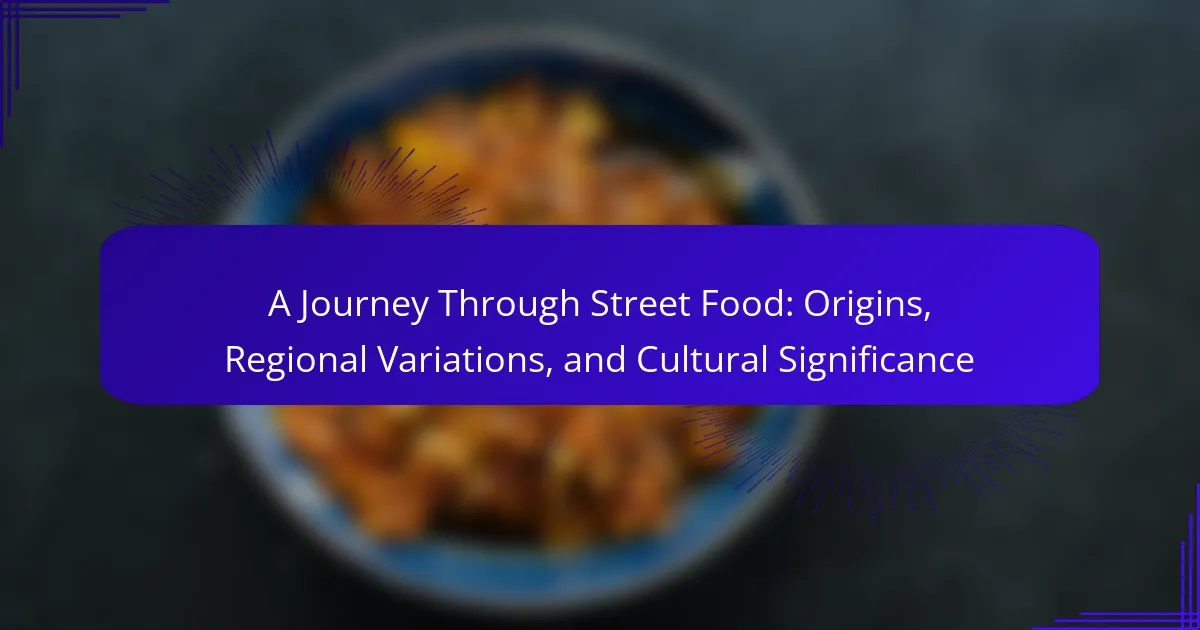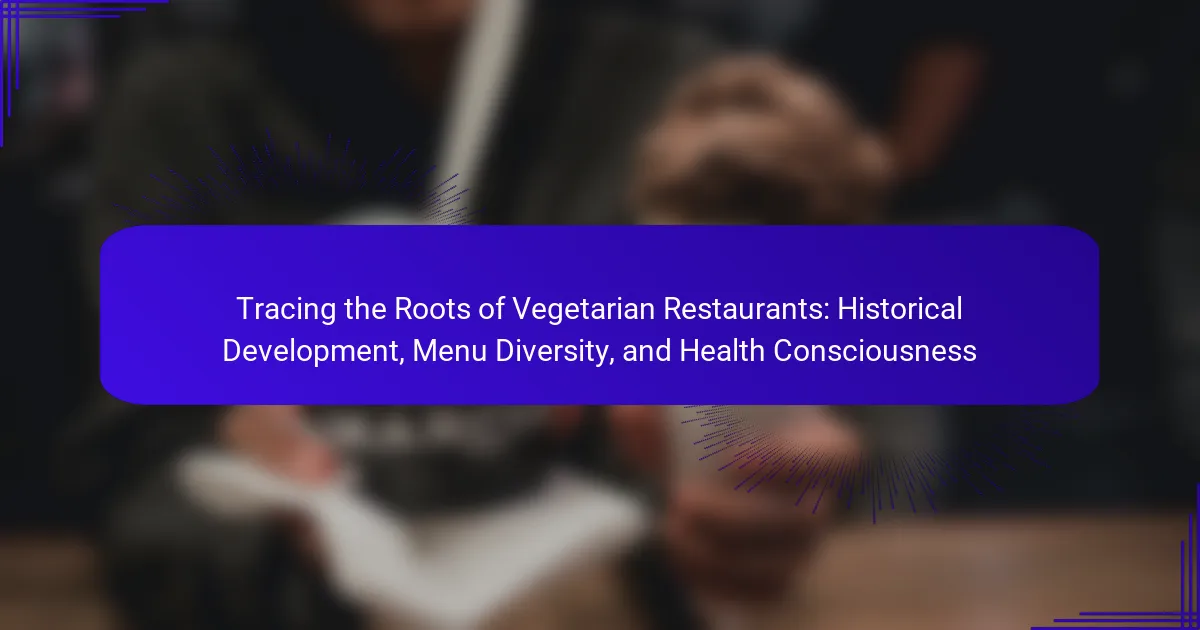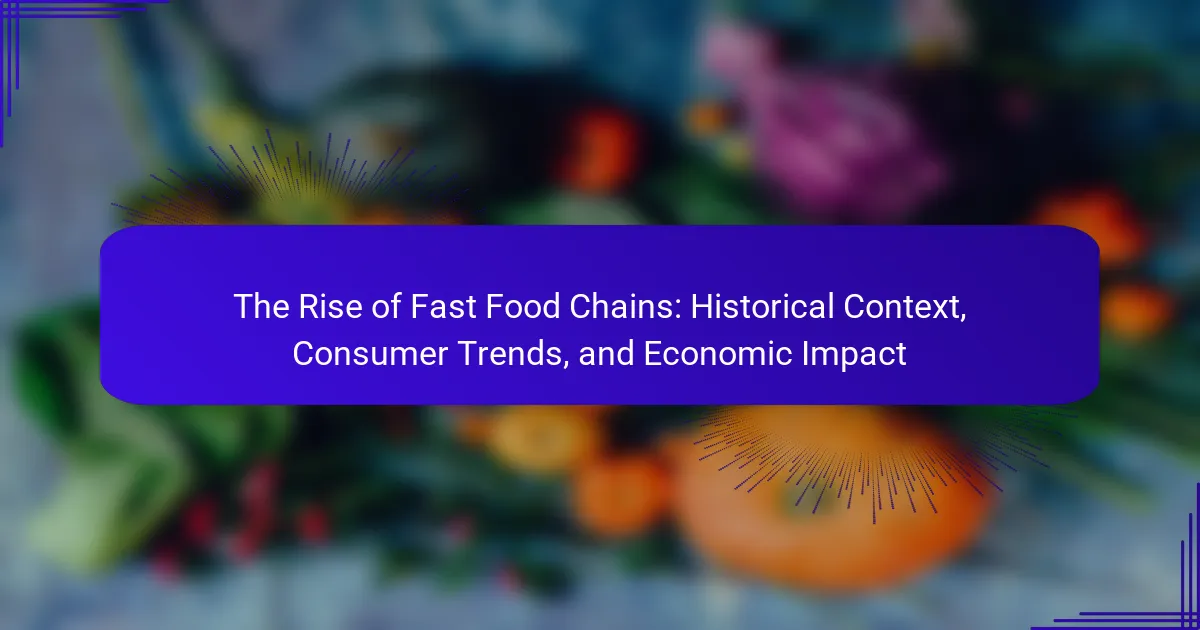What are the Historical Roots of Food Trucks? Food trucks originated in the late 19th century in the United States. They began as mobile food vendors selling meals from horse-drawn wagons. These vendors catered to workers in urban areas who needed quick and affordable meals. The concept gained popularity during the Great Depression, as people […]

A Journey Through Street Food: Origins, Regional Variations, and Cultural Significance
What is Street Food and Its Historical Context? Street food refers to ready-to-eat food sold by vendors in public spaces. It is often prepared and served quickly, catering to people on the go. Historically, street food has roots in ancient civilizations. Archaeological evidence shows that street food was popular in Ancient Rome and Greece. Vendors […]

The Role of Ethnic Cuisine in Restaurant Evolution: Cultural Exchange, Popular Dishes, and Fusion Trends
What is the role of ethnic cuisine in restaurant evolution? Ethnic cuisine plays a significant role in the evolution of restaurants by introducing diverse flavors and cooking techniques. It enhances culinary variety and encourages cultural exchange among different communities. Ethnic restaurants often serve as gateways for diners to experience new cultures through food. This exposure […]

The Impact of Technology on Restaurant Operations: Historical Advances, Efficiency Gains, and Customer Experience
What is the impact of technology on restaurant operations? Technology significantly enhances restaurant operations. It streamlines processes, improves efficiency, and elevates customer experience. For instance, point-of-sale systems automate order processing and reduce errors. Online reservations and ordering systems increase accessibility for customers. Inventory management software optimizes stock levels and minimizes waste. Employee scheduling tools improve […]

The Transformation of Cafés: Social Spaces, Artistic Movements, and Global Influence
What are the key transformations of cafés throughout history? Cafés have undergone significant transformations throughout history. Initially, they served as social hubs in the Middle East during the 15th century. These early cafés focused on conversation and community. By the 17th century, European cafés emerged, becoming centers for intellectual discourse. Notable figures like Voltaire and […]

The History of Michelin Star Restaurants: Award Criteria, Notable Chefs, and Culinary Excellence
What are Michelin Star Restaurants? Michelin Star Restaurants are dining establishments recognized for exceptional quality and culinary excellence. The Michelin Guide awards one to three stars based on various criteria. One star signifies a “very good” restaurant in its category. Two stars denote “excellent cooking” that is worth a detour. Three stars indicate “exceptional cuisine” […]

Tracing the Roots of Vegetarian Restaurants: Historical Development, Menu Diversity, and Health Consciousness
What are the historical roots of vegetarian restaurants? Vegetarian restaurants have historical roots dating back to ancient civilizations. The practice of vegetarianism can be traced to ancient India and Greece. In India, the concept of ahimsa, or non-violence, promoted vegetarian diets among certain religious groups. In Greece, philosophers like Pythagoras advocated for plant-based diets for […]

The Rise of Fast Food Chains: Historical Context, Consumer Trends, and Economic Impact
What are the origins of fast food chains? Fast food chains originated in the United States during the early 20th century. The first drive-in restaurant, A&W, opened in 1919, serving root beer and snacks. In the 1940s, McDonald’s introduced a standardized menu and assembly line service. This innovation significantly reduced food preparation time. By the […]

The Transformation of Cafés: Social Spaces, Artistic Movements, and Global Influence
Cafés, as social spaces, have evolved significantly from their inception in the 15th century Middle East to their current global presence. Initially established as venues for conversation and community, cafés transformed in the 17th century into European centers for intellectual discourse, frequented by influential thinkers like Voltaire and Rousseau. The 19th century marked a cultural […]

The Influence of Celebrity Chefs on Restaurant Trends: Media Impact, Signature Dishes, and Culinary Innovation
What is the influence of celebrity chefs on restaurant trends? Celebrity chefs significantly influence restaurant trends. Their visibility in media shapes consumer preferences. They introduce unique culinary styles and signature dishes. These innovations often become popular menu items in various dining establishments. For example, chefs like Gordon Ramsay and Jamie Oliver have popularized specific cuisines […]
